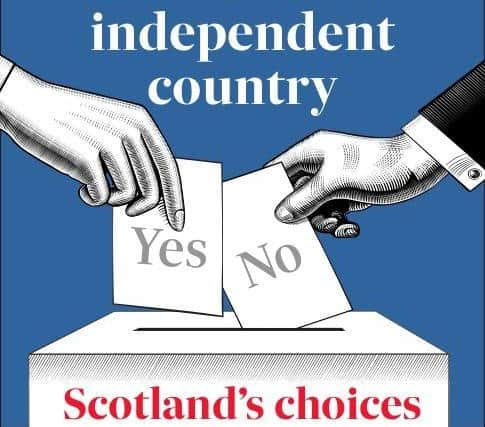Independent Scotland must be careful about how it defines Scottishness
This article contains affiliate links. We may earn a small commission on items purchased through this article, but that does not affect our editorial judgement.
Dr Niamh Gallagher, an associate professor in modern British and Irish history at the University of Cambridge, said an independent Scotland should be “capacious” on the issue of national identity in order to avoid alienating those who voted No.
The academic made the comments while speaking to The Scotsman’s new limited podcast series, How to be an independent country: Scotland's Choices.
Advertisement
Hide AdAdvertisement
Hide AdThe podcast is looking at how other countries have experienced independence and what lessons there might be for Scotland, with the fourth episode focusing on the topic of health and broader social policy.
It has previously examined the question of the England/Scotland borders, what sort of democracy the country may have, and the potential for a Scottish currency.
Speaking to the podcast, Dr Gallagher said “caution” was needed for a potentially independent Scotland around the issue of national identity.
She explained that this was the main lesson to be learned from the early experiences of those in Ireland after the creation of the Irish Free State and before the Second World War.
The expert said: “Thinking about what does nationalism mean, what does it mean to be Scottish, what does it mean to be Irish.


“Sometimes when you try to pin that down into policy it can have very negative repercussions.
"In Ireland’s case in the 1930s, what it meant to be Irish was distancing itself from being British.
"It meant that for minorities in Ireland who still considered themselves with an affinity to Britain, the Anglo-Irish, it became much more difficult for them in a state that was defining itself against them.”
Advertisement
Hide AdAdvertisement
Hide AdDr Gallagher added: “If you are going to have a definition of Scottish-ness that might not be as capacious as one for Scottish people who consider themselves equally British or maybe English, that can lead to an insider/outsider conundrum.


"That can be very difficult and generate new forms of politics that might be more difficult to manage.”
The Irish history expert said that allowing for room in how Scottish-ness is defined would allow a newly independent Scotland to avoid the pitfalls of the early Irish state.
She said: “The lesson there is to be capacious in the understanding of what national identity is, though people will have different understanding of what that actually means.
"Not least because you have to think about the minorities who won’t agree with you, who won’t agree with perhaps the independence model as so many minorities in Ireland did not, but nonetheless are going to be part of the new system if independence were to come about.
"[It is also] thinking creatively on ways to ensure those minorities have representation and rights and that they aren’t made to feel non-Scottish because they don’t inhabit a particular narrow definition of Scottish-ness, that will be really important.”
The fourth episode of the brand new limited series podcast, How to be an independent country: Scotland’s Choices, is out now.
It is available wherever you get your podcasts, including Apple Podcasts and Spotify.
Comments
Want to join the conversation? Please or to comment on this article.
